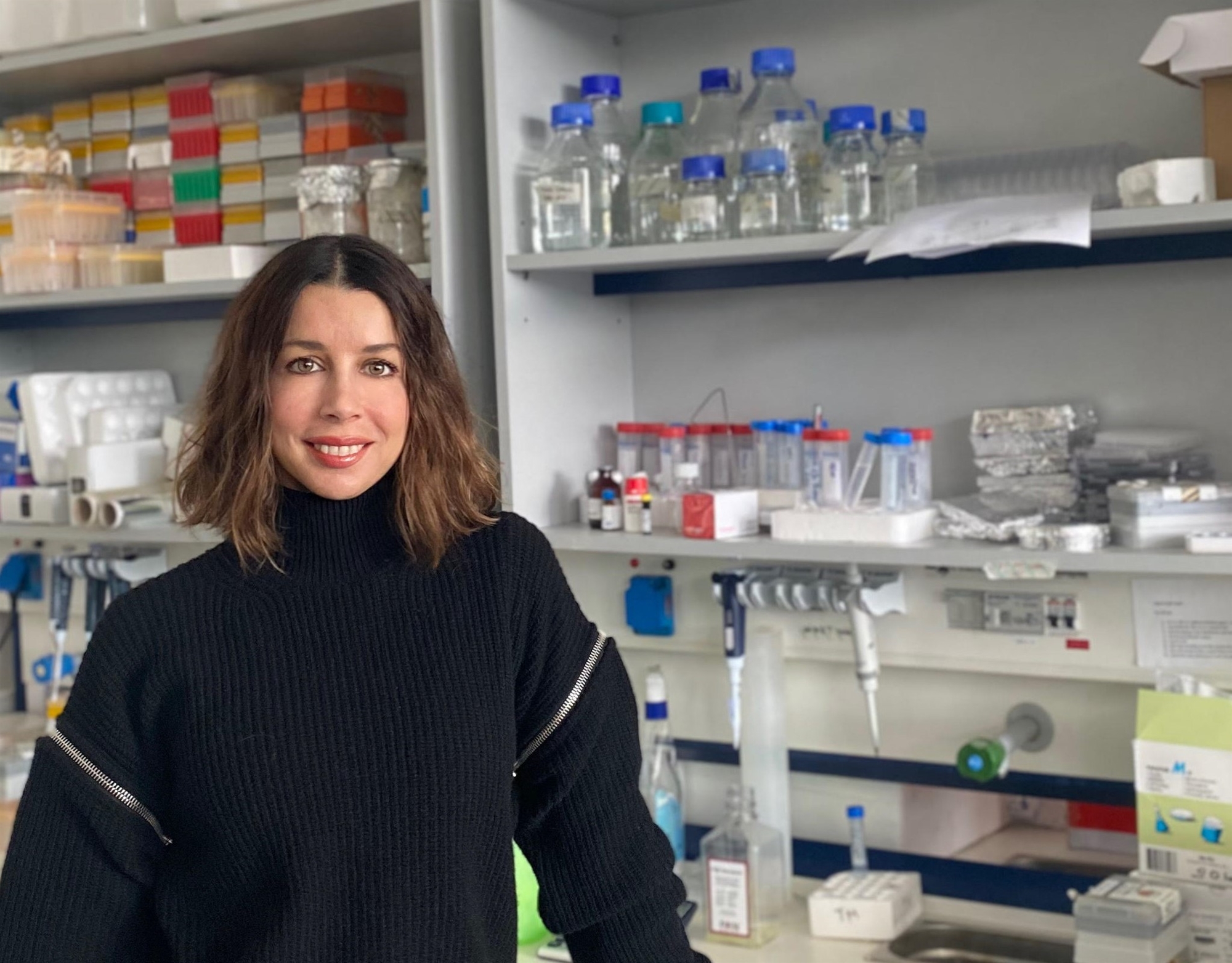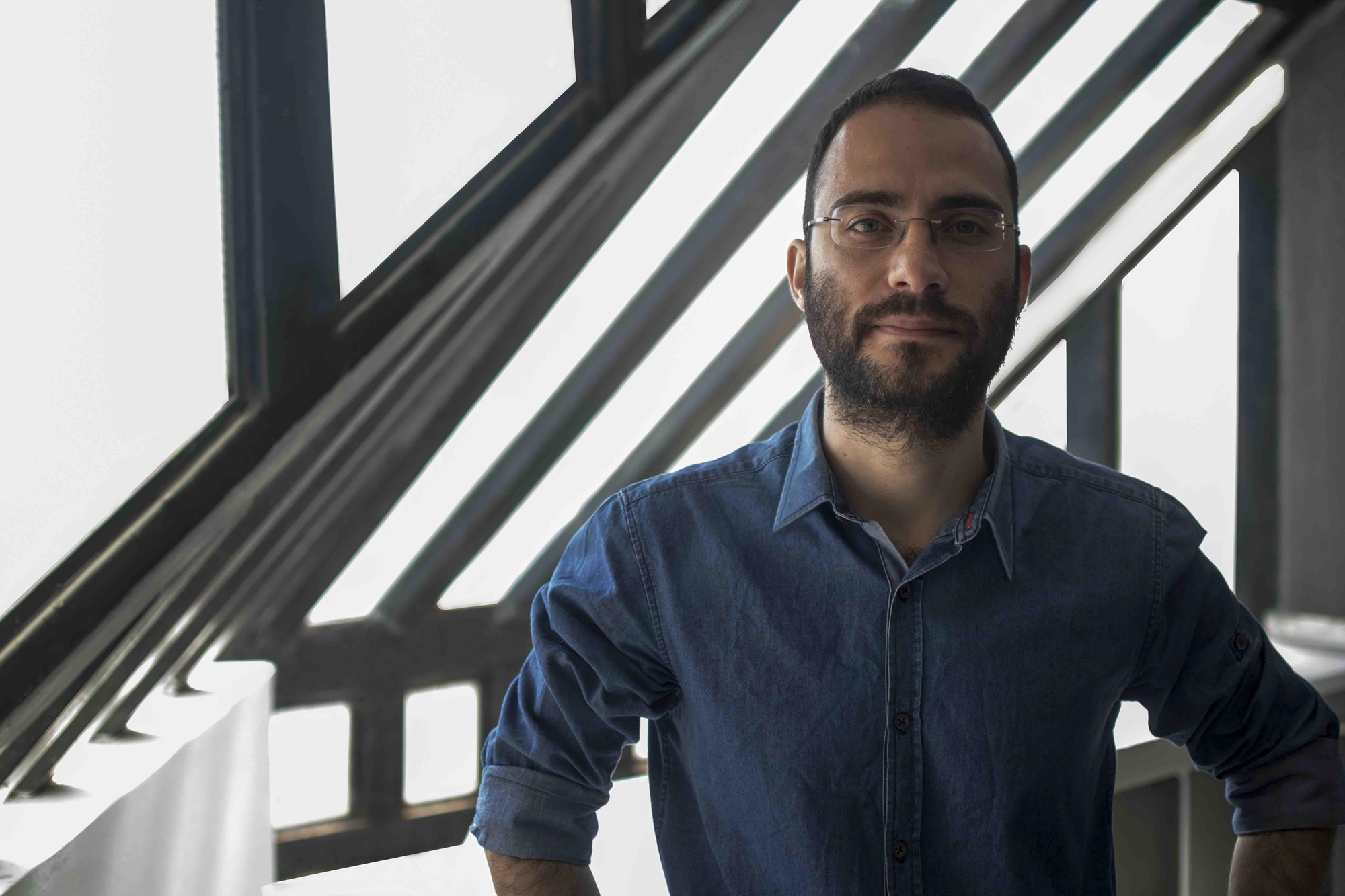
Research activities in Greece lead their own struggle for development and often manage to be at the forefront at the international level. Over the past few days, two young researchers working in Greece have received a very important award as they have been named one of the best in Europe by European Research Council (ERC), and even received funding of 2 million euros each to keep their research teams working on a specific research project over the next five years. Although the two groups work in completely different fields, they are at the forefront of international research.
Pulmonologist Maria Tsumakidu he has led the research team at the Alexander Fleming Institute for Biomedical Research since 2016. He holds a doctorate from the University of Crete School of Medicine and a postdoctoral fellowship from Imperial College London. Her group is studying the mechanisms of immunity to cancer in order to find new immunotherapeutic agents. Dr. Tsumakidu is coordinating an international consortium of academia and industry working to develop the first chip-based bronchoscopic biopsy. Her laboratory received international recognition after the discovery of a new type of lung cell, belonging to the class of fibroblasts, which present cancer antigens and increase the survival of antitumor lymphocytes. “The old concept of fighting cancer was about defeating cancer cells. Then we saw how they interact with the environment, which led us to develop more sophisticated approaches to neutralize them. Lymphocytes are cancer cells that they kill. But they need to be able to recognize. The role of the formation of lymphocytes is taken over by cancer antigens, ”explains Dr. Tsumakidu as simply as possible. “According to the classical model of immunity, lymphocytes only need one contact with a cancer antigen in the patient’s lymph nodes. Our research proposes a new model that, after migrating into the tumor, lymphocytes must be localized and make a second contact with the tumor antigen to fight the cancer. This new model has been accepted for publication in the world’s leading scientific journals Nature Reviews Cancer and the Journal of Experimental Medicine,” adds the Greek researcher.

Fibroblast research
The project that Dr. Tsumakidu presented to the ERC and was selected for funding concerns the further study of fibroblasts, their interaction with other cells, and the networks that determine their gene expression. Her team is currently developing new immunotherapies for cancer patients based on the stimulation of cells that present cancer antigens.
Pulmonologist Maria Tsumakidu and her team at the Institute for Biomedical Research. Alexander Fleming are studying the mechanisms of immunity against cancer in order to find new immunotherapeutic agents.
OUR Nikolaos Bekiaris-Limberis is an Associate Professor at the School of Electrical and Computer Engineering at the Technical University of Crete. His research interests are focused on control theory and its applications. The project selected by the European Research Council is called C-NORA and aims to develop computationally feasible theoretical algorithms for (real-time) control and evaluation of infinite-dimensional transport systems. “When we talk about transport systems, we do not mean “transport systems”, but systems whose dynamics depend mainly on the phenomenon of transportation and may, at first glance, not resemble each other at all. Two heterogeneous examples to which we will apply our general theoretical methods are epidemic transmission and blood circulation,” explains Mr. Bekiaris-Limberis. “Besides, when we talk about an infinite dimension, we mean, roughly speaking, systems that develop not only in continuous time, but also in continuous space.”

Applications
How could all this relate to the fight against epidemics? “The spread of epidemics is an example of a dynamic system that can be described as a continuous transportation system in time/space, since the spread depends on the continuous movement of people to different areas. At the same time, we face practical limitations such as delay in obtaining an accurate count of actual cases due to incubation or test time. Thus, the development of appropriate algorithms will be able to give us answers to questions such as: What quarantine strategy to implement as a country (macro level) and as a city (micro level) in order to better contain the spread with little socio-economic cost? notes an associate professor at the Technical University of Crete.
“In terms of circulation, with C-NORA we will develop algorithms to accurately assess blood flow in real time at points of interest such as areas of stenosis and evaluate important parameters such as the extent and location of stenosis. We will perform non-invasive measurements such as pressure measurement and calculation of internal pressure, which gives a better idea of cardiovascular function. We will also use open access data,” describes Mr. Bekiaris-Limberis.
“To achieve our goals, we will develop new management and analysis methodologies for large-scale infinite-dimensional transport systems. We will combine tools from the area of systems management, described by partial differential equations, and traffic management tools,” he adds. Already in the past, Mr. Bekiaris-Limberis and his research team have tested algorithms for calculating traffic on the streets, as well as for estimating presence – the concentration of people in a space.
Source: Kathimerini
Ashley Bailey is a talented author and journalist known for her writing on trending topics. Currently working at 247 news reel, she brings readers fresh perspectives on current issues. With her well-researched and thought-provoking articles, she captures the zeitgeist and stays ahead of the latest trends. Ashley’s writing is a must-read for anyone interested in staying up-to-date with the latest developments.